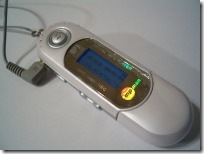 USB Drives are so popular these days nobody thinks much about them anymore. They come in all sizes (up to 128GB these days) and don’t really cost that much. They’re cheap enough that some people give them away.
USB Drives are so popular these days nobody thinks much about them anymore. They come in all sizes (up to 128GB these days) and don’t really cost that much. They’re cheap enough that some people give them away.
 So can they spread malware such as viruses? Yes, they certainly can. On many Windows computers, when you plug in a USB drive it does a quick search and it can run programs installed on them. Microsoft calls this a feature.
So can they spread malware such as viruses? Yes, they certainly can. On many Windows computers, when you plug in a USB drive it does a quick search and it can run programs installed on them. Microsoft calls this a feature.
But malware authors (bad hackers) know all about this and they write malware that runs as soon as the device is plugged into a computer. You won’t know it’s happened, malware can install itself quietly in the background without getting in the way of your work.
So what do you do about it?
- Be cautious about what you plug into your computer
- Have a good anti-virus package installed that can scan these devices for you
- You can disable a feature in Windows that automatically runs programs on these USB drives
- In an office environment a good system administrator can lock down this feature across the entire network
What else can plug into your USB port and carry malware?
- USB Flash drives (also called flash drives, pen drives, thumb drives or USB sticks)
- Digital cameras
- MP3 players (including iPods)
- Mobile phones (cell phones)
 And if you’re thinking how can malware get onto a camera, I’ve seen it myself. A friend took their camera to the local shop to print some photos, then lent me the camera so I could help them with something, I detected a virus that installed itself on it from the shop.Yes, it really happens. Take care with USB devices.
And if you’re thinking how can malware get onto a camera, I’ve seen it myself. A friend took their camera to the local shop to print some photos, then lent me the camera so I could help them with something, I detected a virus that installed itself on it from the shop.Yes, it really happens. Take care with USB devices.
Hey, have you seen this news article?
New details about Michael Jackson’s Death Emerge
I was wondering if you were going to blog about this…